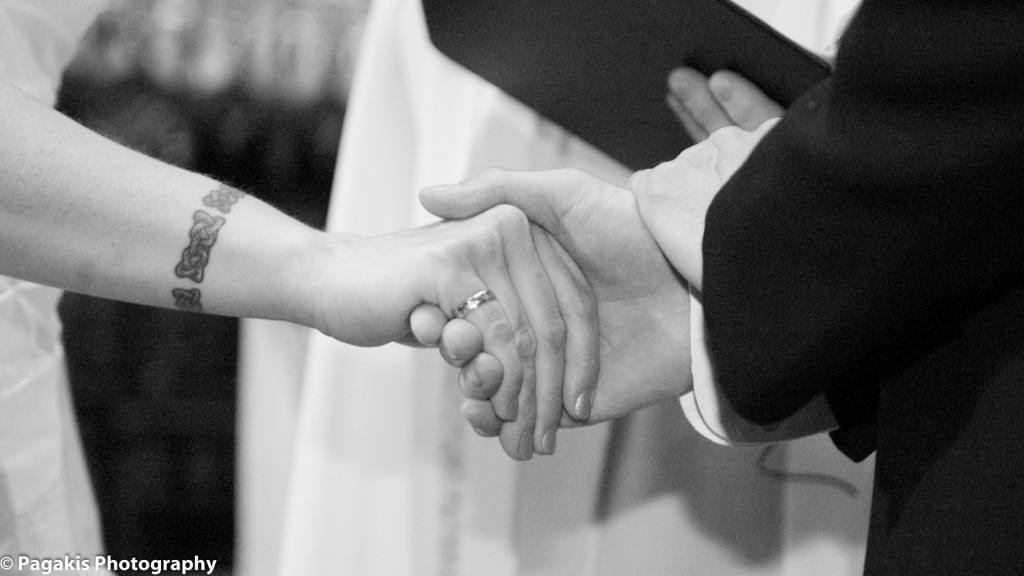
If you are among the thousands of couples already married or about to be married, this information may be of interest to you. It explains the main legal aspects of marriage, particularly the formalities to be performed before the marriage, the rights and duties of spouses, the partition of the family patrimony and the various matrimonial regimes.
The minimum age for contracting marriage is 16 years. Persons under 18 years must nevertheless obtain their parents'consent. A notice must be posted for 20 days before the date fixed for the marriage, at the place where the marriage is to be solemnized. This notice contains the name and domicile as well as the date and place of birth of each intended spouse. The accuracy of that information must be confirmed by a witness of full age. An exemption from publication can be obtained for serious reasons.
In principle, any interested party, including a minor, can oppose the marriage for good reasons.
Finally, the marriage must be contracted openly before an officiant authorized by the Minister of Justice and in the presence of two witnesses. It has the same legal value whether it is solemnized before a clerk or a deputy clerk of the Superior Court in the case of a civil marriage, or before a competent minister of religion in the case of a religious marriage, and confers the same obligations and responsibilities upon the spouses.


Legally, marriage is governed by the family law provisions of the Civil Code of Québec. Family law is founded on two major principles: equality of the persons making up the couple and freedom to organize the union. The spouses must:
First of all, neither spouse may dispose of the family residence and the furniture used by the household (with which this residence is furnished or decorated) without the consent of the other; a spouse who disregards that obligation could be liable for damages. However, this restriction has no effect on the right of ownership. The spouse who had not consented to the disposal of the family residence can have the transaction annulled if a declaration of family residence was first registered with the registry office of the registration division where the residence is located. A declaration of family residence can be made by either spouse, or jointly by both of them. A spouse who makes an individual declaration is under no obligation to tell the other spouse about it.


Before dealing with the various matrimonial regimes, some aspects of family patrimony should be considered. The family patrimony includes:
This point requires further clarification. Although the rules on family patrimony automatically apply to all spouses who, consequently, cannot withdraw from the partition of the family patrimony before or during the marriage, withdrawal is possible at the time of partition, either when a judgment of divorce, separation from bed and board or annulment of marriage is pronounced, or when one of the spouses dies, by way of a notarial deed or a judicial declaration.
The value of the family patrimony must be established at the time of partition, in the event of separation from bed and board, divorce, annulment of marriage or the death of either spouse. That value will be divided equally between them or between the surviving spouse and the heirs, as the case may be.
First of all, the debts contracted from the acquisition, improvement, upkeep and preservation of the property composing the patrimony are subtracted from the total market value. This gives the net value of the patrimony. Other amounts must then be deducted, notably the net value of the property the spouses possessed when they married and the amounts provided by the spouses during the marriage for the acquisition or improvement of the patrimony, where the contributions were made out of property acquired through succession or gift. Once all these calculations have been effected, the value of the family patrimony to be partitioned is obtained.
Property acquired by a spouse by succession or gift, before or during the marriage, its increase in value, and property such as immovables not used by the family, money in bank accounts, shares, etc., are excluded from the family patrimony.
All of this property is subject to the rules of the spouses'matrimonial regime.
Although measures now exist to govern the partition of certain property, it remains important to choose a matrimonial regime to cover the sharing of other household property. The first thing to do in planning for life together is for both spouses to choose the matrimonial regime best suited to their needs.
A matrimonial regime contains provisions regarding the property of the spouses. They can choose one of three matrimonial regimes: the legal regime of the partnership of acquest, separation as to property, and community of property. A couple can even create its own regime by stipulating, for instance, that only part of the property will be considered acquest while the remaining property will be subject to the rules governing separation as to property. A great many clauses can be included in a marriage contract and every possible situation can be covered, as long as the contract is in keeping with the provisions of the Civil Code of Québec respecting the effects of marriage. The chosen matrimonial regime comes into force as soon as the marriage is solemnized.
Except for the legal regime of partnership of acquest, which applies automatically to spouses who do not conclude a marriage contract, the other regimes must be the subject of a notarial contract.
There is no perfect matrimonial regime. It is up to the partners to weigh the pros and cons of each regime, according to their situation and expectations, and to make a choice that will be satisfactory to both of them. The matrimonial regime chosen has no effect on property included in the family patrimony, but only on other property.
Nearly half of all couples get married without a notarized marriage contract. Their union is then automatically governed by the regime of partnership of acquest. This regime by which each spouse owns and administers private property and acquest, is the legal regime in force since July 1st, 1970.
The following are also considered private property:
The right to support, to a disability pension, and other benefits of the same nature.
In general, property acquired during a marriage is considered an acquest, and its value is liable to be divided equally between the spouses should the regime be dissolved. Particularly, this property includes: salaries, investment and work income, and property acquired with that money. Unless it can clearly be established as the private property of one of the spouses, the property is considered an acquest.
As each spouse administers his or her private property and acquest, he or she is solely responsible for the debts he or she contracts. An exception to this rule concerns debts contracted for the current expenses of the family, for which both spouses are responsible.
Also, if the matrimonial regime is dissolved, each spouse can refuse the acquest of the other, particularly when the acquest show an unfavourable balance. However, refusal on the part of one spouse of the acquest of the other does not affect the others's right to his or her spouse's acquest, except in the case of death.
A notarial contract is not necessary to be covered by the legal regime of partnership of acquest. However, couples with special requirements can always have a contract drawn up by a notary and adjust the rules of the regime according to their own needs.
This regime must be committed to a marriage contract made before a notary.
Under this regime, each spouse remains the exclusive owner of his or her property, administers alone all his or her property and assumes responsibility for his or her debts. However, there are exceptions attenuating that principle, according to the provisions dealing with the family patrimony, the protection of the family residence and the furniture in it, and the joint responsibility of the spouses with regard to debts contracted for the family's current expenses. As mentioned earlier, a spouse who is the sole owner of the family residence cannot dispose of it without the other spouse's authorization.
When the regime is dissolved, a spouse must be able to prove his or her ownership of an item to be recognized as the owner. Each spouse keeps what is his or hers. Gifts by contract of marriage can also increase the amount devolving upon the beneficiary. In some cases, however, the gifts mutually granted by the spouses in contemplation of death are automatically cancelled by divorce or annulment of the marriage; in all other cases, they can be cancelled or reduced by the court.
It is in the best interest of couples who opt for the regime of separation as to property to purchase all durable goods, particularly immovables, in undivided co-ownership. This can be done simply by having the names of both spouses written on each notarial deed of ownership or purchase whenever the value of a transaction warrants it.
Although the regime of community of property has not been the legal regime in Québec since 1970 and is no longer popular among the majority of spouses, it is still possible to opt for it, by notarial contract, and make certain changes deemed necessary.
Moreover, persons married without a marriage contract before that date continue to be governed by the provisions of the Civil Code of Québec respecting community of property, unless they have since then concluded a marriage contract.
Under this regime, the property of the spouses is divided into three categories : common property, private property and the wife's reserved property (her salary, property acquired with her salary, etc.). The husband administers the assets of the community and his private property. However, he needs his wife's consent before he can sell, give or mortgage any asset of the community. The wife administers her private property and her reserved property. On the other hand, if requested by her husband, the wife must turn over to the community any income derived from her private property that has not been expended. She has the same rights over her reserved property as her husband has over the assets of the community.
The assets of the community consist of:
Private property includes:
To make things easier when the matrimonial regime is dissolved or amended, or when either spouse dies or the marriage breaks up, each spouse would do well to keep documentary proof of all the transactions made, and preserve any important papers: invoices, documents proving ownership, etc. This is even more important in the case of the regime of separation as to property.
A matrimonial regime or a marriage contract can be changed or amended at any time, provided both spouses mutually agree and sign a new deed to that effect before a notary. It is not necessary to have the court approve the change or to issue public notices for the benefit of creditors. This also applies to immigrants residing in Québec who, for example, have a matrimonial regime that differs too greatly from ours.
The new matrimonial regime comes into force on the day the contract is signed and is not retroactive.
We hope that this information has provided some answers to your questions. However, if certain points remain unclear, do not hesitate to contact a lawyer or a notary
Ministère de la Justice
Gouvernement du Québec